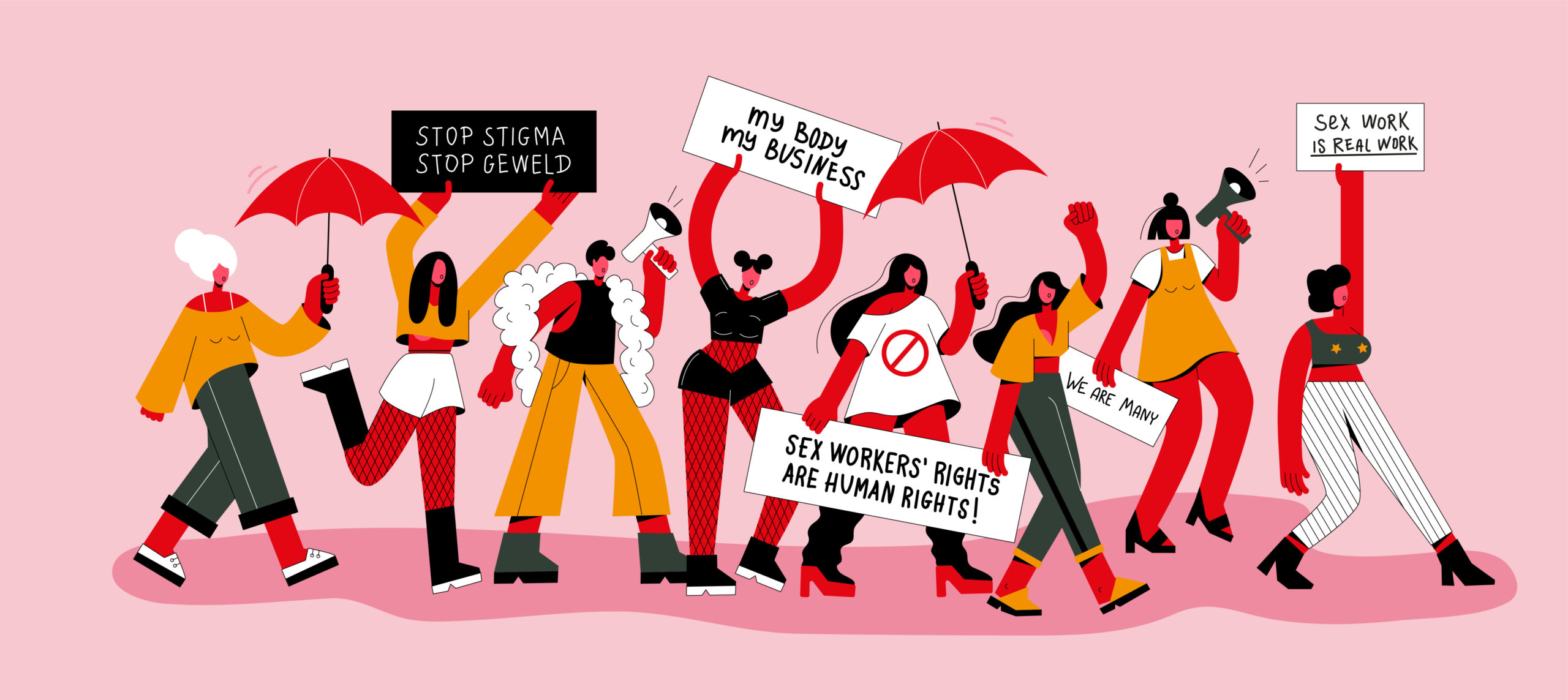Whether sex work should be considered empowering or exploitative remains one of the most disputed debates within feminism.
At the heart of this divide are two polarising positions – radical feminists, who view sex work as inherently exploitative, and sex-positive feminists, who understand sex work to be an expression of women’s sexual autonomy.
At the centre of this debate is those who believe sex work is work and, when women face limited financial options, they should have the right to work in the sex industry without facing persecution and stigma.
The International Committee on the Rights of Sex Workers in Europe published a briefing paper to explain the intersection between feminist ideologies and sex workers’ rights.
The ICRSE explains that radical feminists, also known as abolitionists or neo-abolitionists, believe that sex work is a form of violence, similar to slavery, regardless of whether it is forced or voluntary.
For this reason, it seeks the end of prostitution through regulations and prohibitions, including the criminalisation of the clients.
In radical feminist ideology, the sex worker is seen as an object who cannot speak for themselves, so the radical feminist speaks for them.
The Network for Sex Work Projects references this on their website, saying: “Not only do sex workers not see our work as akin to slavery but using this term this term minimises and trivialises the experiences of those who have (and do) endure slavery.”
Contrary to the core discourse of radical feminists, sex-positive feminists hold the view that sex work is empowering and an individual choice.
These two perspectives of domination and liberation are often considered too simplistic, when the reality for many is far more complex – which is where a third perspective comes in.
The ‘sex work as work’ viewpoint recognises choice may be constrained, but sex workers should be able to speak for themselves and that the key issues relate to bad laws and social stigma.
It argues that sex work is a legitimate form of work, but there is an inherent problem with being forced to work for survival and capitalist societal structures should be critiqued instead.
An important aspect of this is that sex work is defined as the consensual exchange of money or other goods for sexual services, however it is understood that not everyone is in an equal position during transactional sex.



